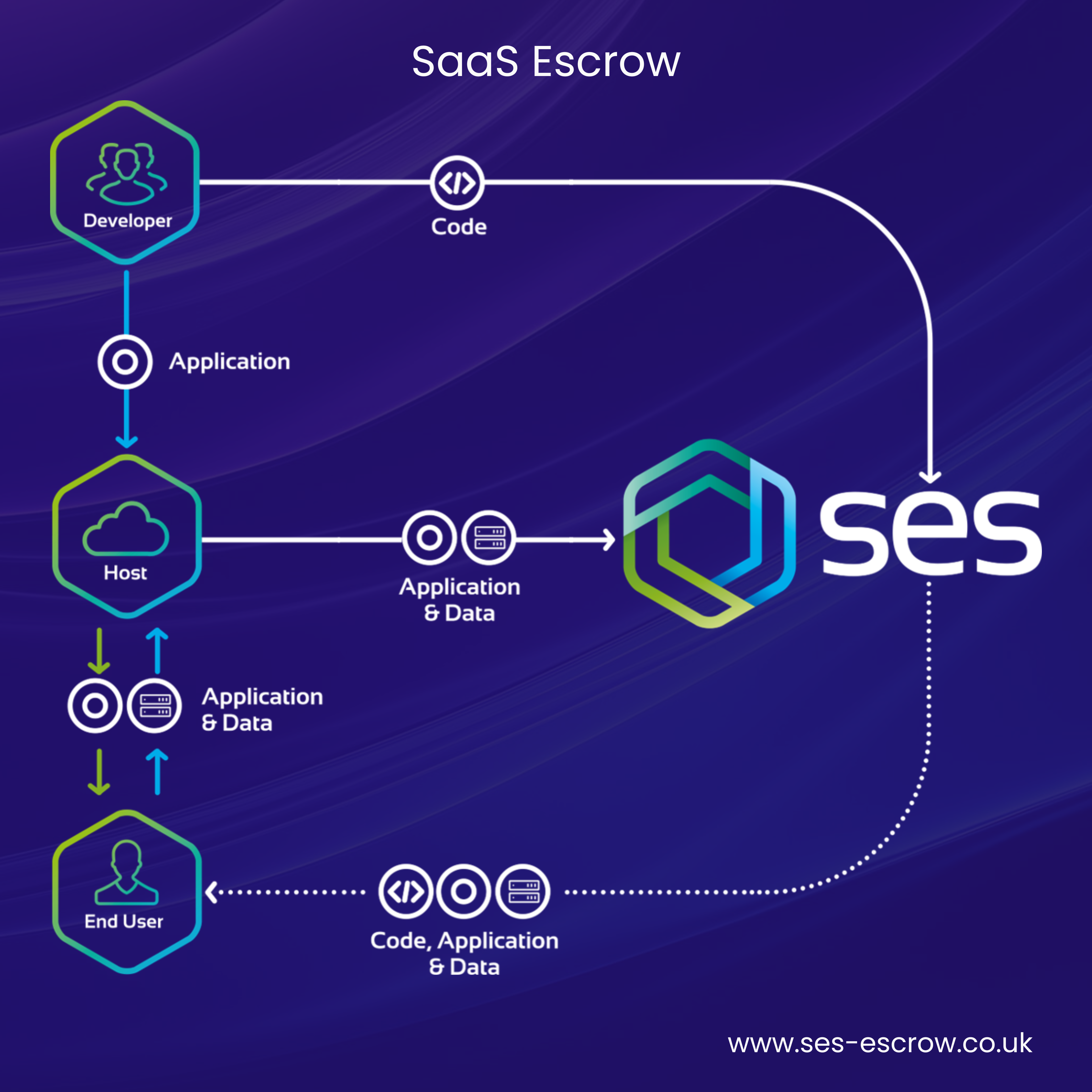In a recent blog, we explored the testing services involved in Software Escrow. Building on that that, this blog will dive into the various common types of testing involved in a SaaS (Cloud) Software Escrow Solution.
SaaS (Software as a Service) refers to a cloud-based software delivery model. SaaS systems involve applications being hosted by a service provider. The hosted applications can be accessed from anywhere in the world using an internet connection.
SaaS Escrow is a tool that safeguards applications that are hosted on the cloud. When faced with unforeseen disruption, SaaS Escrow enables a software user to maintain uninterrupted access to an application, allowing business operations to continue running.

In the context of SaaS Escrow, testing services are crucial to ensure that software applications and related assets deposited into Escrow are functional, complete, and can be deployed successfully in the event of a SaaS Escrow release event. Different types of testing services may be used in SaaS Escrow, such as:
Validation Testing
Purpose: To confirm that the software and other components deposited in Escrow are complete, functional, and match the expected version.
This typically includes verification checks which assess file integrity, versioning, all source code, libraries, dependencies, and documentation.
Build Testing
Purpose: To verify that the source code deposited can be compiled into a working application.
The Escrow provider will attempt to build the application from the source code to ensure that there are no missing dependencies or compilation errors. This ensures that in a release event, the software can be successfully rebuilt and deployed.
Deployment Testing
Purpose: To validate that the software can be installed and deployed within the target environment or infrastructure.
Testing includes installing the software on a server, configuring the necessary environment, and ensuring that the application runs as expected. It may also involve setting up cloud environments if the SaaS solution is hosted on a specific cloud provider.
Functionality Testing
Purpose: To confirm that the core functionalities of the application work as expected.
This can involve running a series of tests that mimic typical user interactions with the software. These tests ensure that all essential features and modules are operational. This is particularly important for SaaS applications where different functionalities may be dependent on cloud services.
Automated Testing
Purpose: To streamline the testing process by automating repetitive checks.
Automated testing tools can run various tests, such as unit, integration, system, and regression tests. These tests ensure consistency and reduce the time required for manual testing. This can be particularly useful for verifying whether new versions of the software work correctly.
Code Analysis and Security Testing
Purpose: To assess the quality and security of the code deposited in escrow.
This includes running static code analysis tools to detect vulnerabilities, coding errors, and potential security threats. Security testing may involve penetration testing to identify and address vulnerabilities.
Operational Testing
Purpose: To verify that the software can handle typical operational tasks, including backup, recovery, and data handling.
This involves testing features related to data storage, backup processes, scalability, and disaster recovery procedures to ensure that the software can handle real-world operational challenges.
The Crucial Importance of Testing Services in SaaS Escrow
Testing services ensure that the software in Escrow is complete, operational, and isn’t just a partial or outdated version.
Additionally, software users who access the software due to a release event can confidently deploy and use the application without facing technical issues.
The carrying out of testing services also demonstrates a SaaS provider fulfilling their obligations in terms of software availability, quality, and functionality.
Testing services in SaaS escrow help to safeguard the interests of both the SaaS provider and the end users by ensuring that deposited software is functional, secure, and deployable. This process ultimately mitigates risk, especially when the Escrow is triggered due to the SaaS provider's inability to maintain the service (e.g., due to bankruptcy or failure to meet service-level agreements).
Want to learn more? Feel free to get in touch with our team by giving us a call on 0161 488 1400.